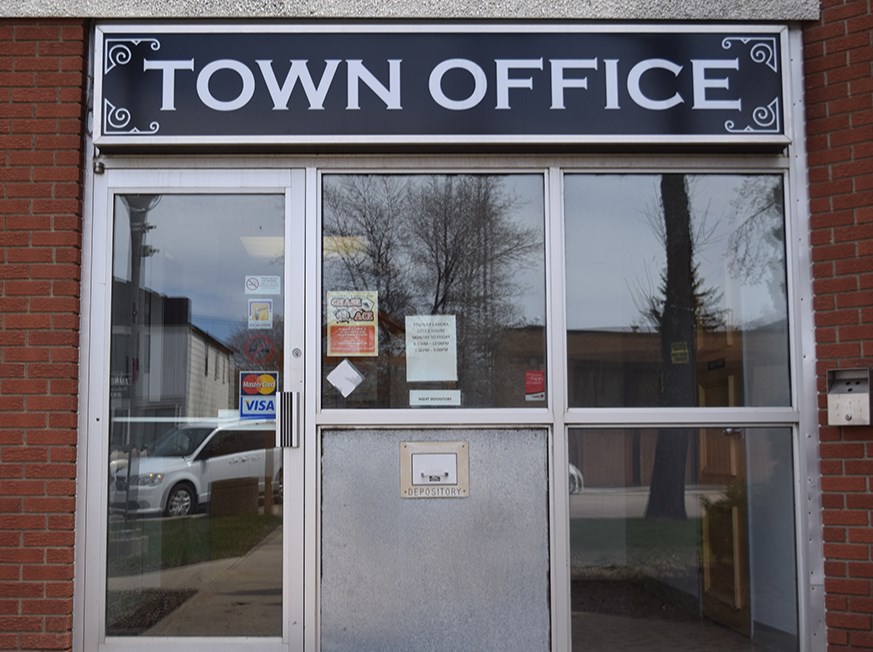CANORA - Mayor Mike Kwas and all six Canora councillors took advantage of the opportunity to attend the 2024 Saskatchewan Urban Municipalities Association Convention in Regina on April 14-17, which was themed “Refresh, Renew, Refocus.”
Canora council members are: Eric Sweeney, Brad Gabora, Jacqueline Fetchuk, Dave Wasyliw, Kerry Trask and Denise Leslie.
The Canora representatives reported a strong turnout, giving them “a great opportunity to network with other municipalities that face the same challenges we have,” according to Mayor Kwas. “We all attended different workshops and were able to take in many of the booths at the trade show.”
As always, the convention gives members the chance to influence policy on a provincial level. Many of the resolutions that were passed are presented to the provincial government as priorities for municipalities. And the bear pit session allows councillors the opportunity to present their concerns directly to provincial ministers.
“The trade show was really helpful this year when Canora council members visited some of the vendors and actually saw and asked questions about some of the products and services that we are considering purchasing or using this year,’ Kwas said.
“What we find especially valuable is the opportunity to meet new people and build relationships with peers and councillors from other communities. The networking extends to SUMA board and staff members and various provincial cabinet ministers too.”
Educational sessions at this year’s SUMA Conventions included: conflict resolution, challenges with municipal-taxpayer relationships, infrastructure challenges, cyber security and disaster management.
“The annual convention is always a great opportunity for council members to get out and spend time with one another to learn and grow as a council,” Kwas said. “It is an important part of the development of council as a whole and as individuals.”
Especially noticeable this year were resolutions related to conflict and harassment.
“It sounds like everyone is experiencing increasing levels of conflict everywhere – between councils, municipal staff and the public in various configurations. Some examples were heard about council-staff problems, and public-staff or public-council issues.”
Resolutions up for debate included topics such as: anti-harassment support, financial support for fire departments, more supports for animal control, adding unpaid fines to tax rolls, crop spray drift notifications, increasing nurse practitioners, highway closure authorization, supporting and growing the public library system, and greater bylaw enforcement powers.
Almost all of the resolutions this year are issues that Canora has been affected by or currently dealing with, according to Michael Mykytyshyn, Canora Chief Administrative Officer. “Once again, this shows that many municipalities are struggling with the same issues.
“Harassment and abuse of staff by the public has been increasing everywhere and Canora is no exception. This is one of leading causes of administrative burnout and turnover in many municipalities and is made much worse by social media. Often, council members and employees currently have little recourse to deal with such matters.”
Another resolution dealing with a significant local issue is bylaw enforcement, including collection of fines and animal control. “It is always a challenge. All aspects of bylaw enforcement come with a cost and unfortunately, many towns and villages have limited budgetary resources to carry this work out consistently or effectively. The legal options and system for the collection of municipal fines is also costly and ineffective, which discourages using that as an enforcement tool,” concluded Mykytyshyn.
“Municipalities are also struggling to fund the big projects,” added Kwas. “As costs increase, projects like street paving and water supply improvements, even facility maintenance become harder and harder to achieve. And with increasing regulations and requirements, decision-making for the town becomes more difficult each year.”
Don't count on social media to deliver your local news to you. Keep your news a touch away by bookmarking Canora Courier's homepage at this link.
Bookmark SASKTODAY.ca, Saskatchewan's home page, at this link.




